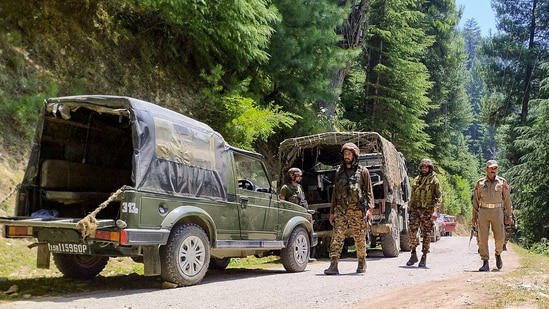India faces an increasingly diverse and evolving range of terror threats from global extremist organizations like ISIS and Al Qaeda, according to a new report issued by the Financial Action Task Force (FATF). The international body, responsible for monitoring and promoting policies to combat terrorism financing and money laundering, has raised alarms over how these groups are adapting their strategies to carry out attacks within India, as well as how they are leveraging regional instability to further their influence.
The FATF’s report highlights a growing concern over the convergence of various jihadist groups operating in South Asia, with India being a key target. It also underscores the critical need for India to strengthen its defenses against both external and homegrown radicalization, as terror networks continue to evolve and adapt their tactics.
Evolving Threat Landscape
According to the FATF report, India is exposed to a “disparate range” of terror threats, primarily driven by well-established international terror groups like ISIS, Al Qaeda, and their regional affiliates. These organizations have been increasing their propaganda and recruitment activities targeting vulnerable communities in India, while also using sophisticated online methods to radicalize individuals and inspire them to carry out attacks.
The rise of “lone wolf” attacks and decentralized terror cells remains a major challenge. These attacks are often carried out by individuals or small groups radicalized online, without direct involvement from larger terrorist networks. This makes it harder for security forces to predict and prevent such incidents. Al Qaeda in the Indian Subcontinent (AQIS) and ISIS-inspired groups have both been linked to attempts to foment violence, with specific threats to India’s religious harmony.
Additionally, the report highlights how India’s geopolitical location, with proximity to volatile regions like Afghanistan and Pakistan, increases the risk of terror infiltration. These areas serve as hubs for jihadist networks, providing a steady flow of trained militants, funds, and weapons into India. This presents a complex challenge for the country’s security and intelligence agencies.
Impact of ISIS and Al Qaeda Networks
While both ISIS and Al Qaeda have suffered significant losses over the years, their ability to inspire and direct attacks globally remains strong. The FATF report stresses that in South Asia, particularly in India, these groups continue to maintain a substantial online presence. ISIS, through its South Asia affiliate, ISIS-K (Islamic State Khorasan Province), has been attempting to establish a foothold in the region.
ISIS-K has been particularly active in parts of Afghanistan, with links to cross-border insurgents. Its influence is increasingly being felt in India, particularly in areas with socio-economic instability and in regions like Jammu and Kashmir. ISIS has been involved in recruitment drives and radicalization campaigns aimed at Indian youth, especially through social media platforms. The report also notes that ISIS has successfully recruited Indian nationals to join its ranks both abroad and domestically.
Al Qaeda, though significantly weakened compared to its peak, is also seen as a serious threat. The group has refocused its strategy in recent years, building regional alliances and using its AQIS affiliate to operate in India. AQIS has openly stated its intent to target Indian interests and has been linked to multiple terror plots that were either foiled or resulted in violence.
Terror Financing and Money Laundering Concerns
A major part of the FATF’s report revolves around how these terrorist organizations continue to finance their activities. Both ISIS and Al Qaeda use complex networks of illicit trade, drug trafficking, smuggling, and donations to sustain their operations. Terror financing through hawala networks, cryptocurrency, and other underground financial systems presents a significant challenge to Indian authorities.
The report also emphasizes the growing role of Non-Governmental Organizations (NGOs) and charities being exploited by terrorist organizations for funding purposes. It urges India to enhance its vigilance on financial flows, especially those moving through unregulated channels.
India’s Counterterrorism Response
In response to the increasing threat levels, India has taken significant steps to strengthen its counterterrorism measures. The Indian government has expanded its counter-radicalization programs and ramped up surveillance of social media platforms where extremist content is circulated. Law enforcement agencies are working in close collaboration with international counterparts to track and neutralize terror cells operating within and outside the country.
India’s counterterrorism framework, including the Unlawful Activities (Prevention) Act (UAPA) and the National Investigation Agency (NIA), has been crucial in combating terror networks. However, the FATF report recommends that India further bolster its legal and financial frameworks to prevent terrorism financing and better monitor radical activities in real time.
As ISIS, Al Qaeda, and their affiliates continue to adapt their strategies and seek to exploit regional instabilities, India faces a dynamic and evolving threat landscape. The FATF’s warning underscores the need for a multi-faceted approach that includes stronger counterterrorism measures, financial surveillance, and a focus on deradicalization. With terror networks constantly shifting their tactics, India must remain vigilant to safeguard its national security.

